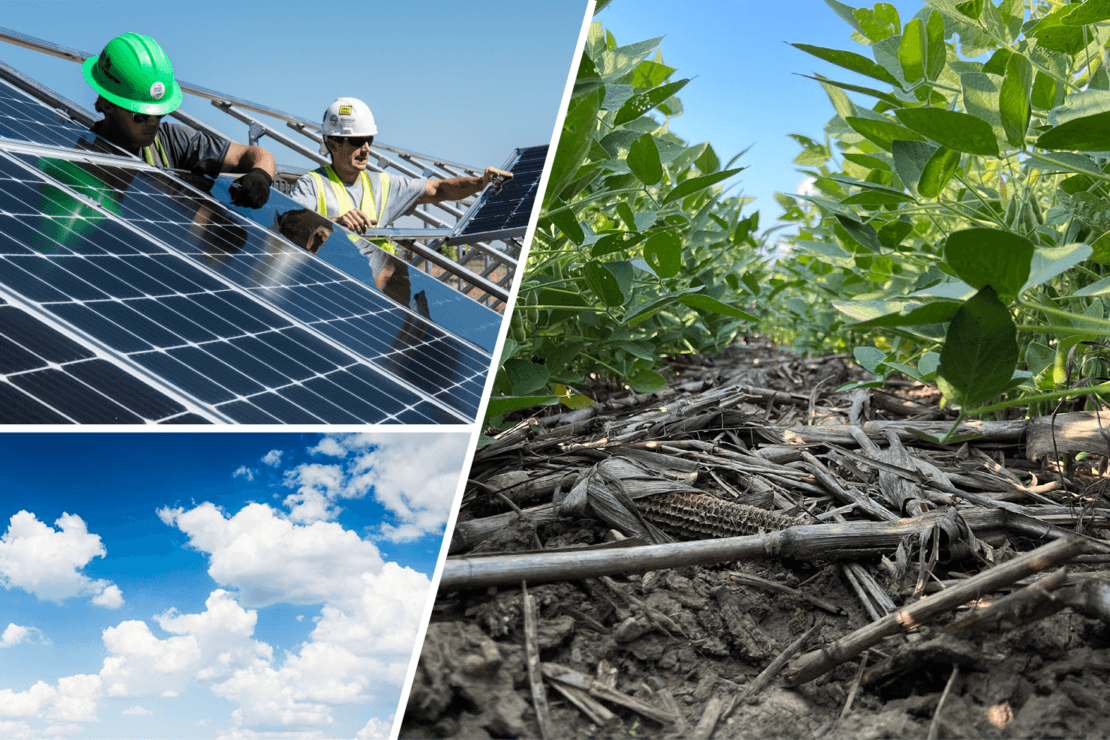Our role in Minnesota’s Climate Action Framework

Today, the State of Minnesota released their Climate Action Framework, the Walz and Flanagan Administration’s vision for how Minnesota will address and prepare for climate change. This plan identifies goals and accompanying action steps to reduce climate-changing pollution and build resiliency against the changes to come.
The Framework builds on the work of past administrations, both Republican and Democrat, communities, tribal nations, and the private sector. If ever there were a challenge that will take all of us to address, climate change is it, and now is the time. The Framework calls us to take accelerated and amplified action together, bridging differences in identity, interest, and experience.
A little more than a year ago, our staff and board of directors published our response to the International Panel on Climate Change’s report which shows climate change is already affecting every region on Earth in multiple ways. While climate change threatens all of us, it especially harms individuals and communities of color, Tribes, and rural communities.
As an organization, we strive to do our work in a way that invites and supports the full engagement of people in businesses, government agencies, environmental organizations, and most impacted communities. Here are some examples of our commitments to action:
Connecting air pollution and climate change
Environmental Initiative has been working in partnership for more than twenty years to proactively reduce particle pollution and ground level ozone precursor emissions. While climate change and air pollution are different challenges, they are also linked.
The Framework makes this connection. Priority actions outlined in the Framework include electrification of fleets, equitable transit, investment in urban forestry, and educating communities about the health impacts of pollution and climate change. Our clean air work, which focuses on air pollution and exposure reductions, equity, and community engagement, will support many elements of the Framework.
James Trice, Environmental Initiative Board member and founder of the Public Policy Project, believes, “The Framework lays out new openings for greater partnership to address our historical lack of investment in and attention to some of the most neglected areas of our state. This can get us cleaner air and healthier neighborhoods.”
Agriculture as a climate solution
With more than half of the state’s land area dedicated to agriculture, working lands can be a powerful tool in driving improved environmental and social benefit. Engaging working lands and people who manage them through the Climate Action Framework can reduce greenhouse gas emissions, increase water quality, and contribute to prosperous rural economies.
Through our Headwaters Agricultural Sustainability Partnership, farmers are charting the course for Minnesota’s dairy industry to maintain profitability while implementing best practices that support a healthy ecosystem. As administrator for the Midwest Row Crop Collaborative, we work with leading companies and non-governmental organizations to drive landscape level adoption of regenerative agriculture across the Upper Midwest.
“It is encouraging to see a focus on agriculture and working lands in the Framework. Farmers can be a part of the climate solution, by implementing practices that contribute to positive climate outcomes. We look forward to working with partners to implement this Framework,” says Ariel Kagan, director of agriculture strategy.
Reaching sustainability goals together in the private sector
The six Framework goals align with similar sustainability goals held by businesses and organizations that make up the Sustainable Growth Coalition, a business-led partnership focused on the circular economy. The work Coalition members have done, both as individual organizations and as a group, support the Framework, be it in HealthPartner’s participation in the White House Health Care Sector Climate Pledge or in members coming together as a group to share their clean energy and climate goals with state leaders.
As the Coalition moves to advance the circular economy, members are also working to center most impacted communities. This past July three member companies shared how they are incorporating environmental justice into their organization’s sustainability work during a roundtable discussion. The strong focus on equity in the Framework will only strengthen the Coalition’s work in the future.
“Climate action and equity are intrinsically linked to work that is being done to advance the circular economy,” says Britta Dornfeld, co-leader for the Sustainable Growth Coalition. “Member companies are committed and already moving forward. The Framework will lead to new partnerships to help us achieve our mutual goals.”
Moving forward
Environmental Initiative remains committed to doing our part to fight climate change and to advance climate justice. Just as importantly, we remain committed to resist the polarization that has undermined many of our best efforts as a society up to this point. We will continue to partner with this Administration in this work, just as we have with past Administrations. We are here and ready to help build bridges in a time of great political and social division so that we can tackle the problems of climate change in the only way that will work – together.
If you feel moved to be a part of our work or if you have ideas, contact me, or contact another member of our staff. Please take the time to read the Framework and reflect on what your part is to play as an individual, a member of your community, and as an employee of your organization or business.